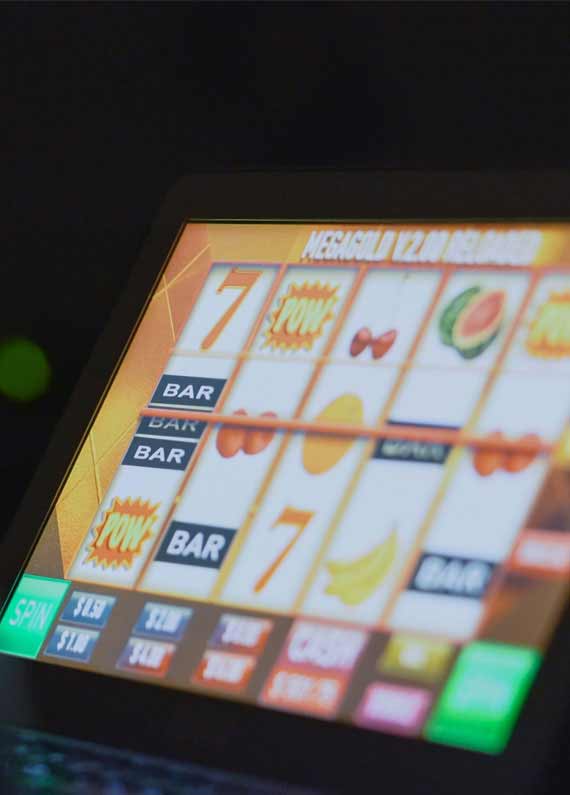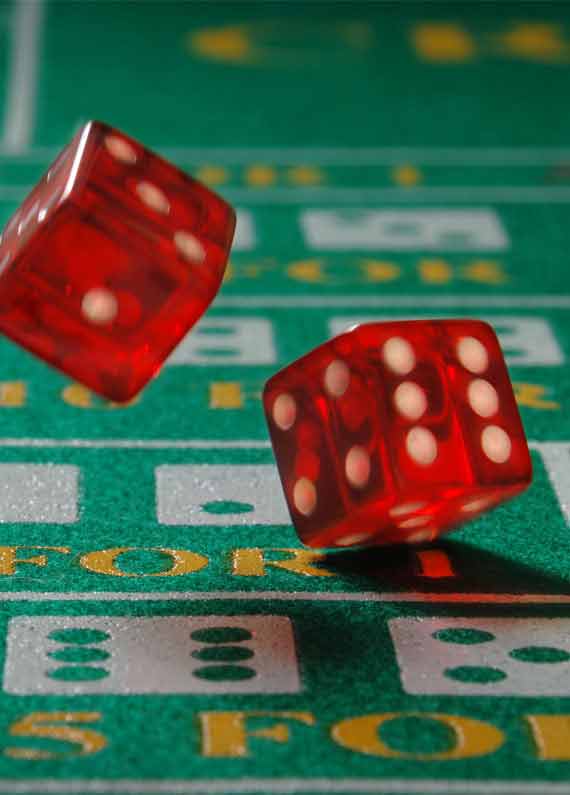How to Play Roulette for Beginners

Beginners will often find roulette to be one of the easiest games to learn when they first enter a casino, either in person or online. The game of roulette is played at a relaxed pace and does not require memorization or mathematical expertise. Most of roulette’s rules involve the individual bets, which include a wide range of odds and payouts. And even-money bets are easy to learn and pay off over 47% of the time, while single-number bets will provide players with lucrative 36:1 payouts.
Keep reading this article to learn how to play the three main versions of the game of roulette. Beginners will want to know the differences between European Roulette and American Roulette. We will also discuss the game of French Roulette here as a third option, so intermediate players and advanced players can determine whether they want to learn the exotic French bets. We will cover the basic bets, and then provide strategies and tips you might want to use as you play roulette at the casino.
American Roulette vs. European Roulette
A common question that players have is about the difference between the games of American Roulette and European Roulette. European Roulette, which is also known as single-zero roulette, is the most common version of the game. Francois Blanc introduced this version of the game to Monte Carlo, where single-zero roulette became a favorite among visitors to Europe’s gambling capital during the Victorian Age. The European empires spread the game through Asia, Africa, and Australia, so European Roulette is played almost everywhere in the world these days. As well, European Roulette has a house edge of 2.70%, which is much lower than American Roulette’s house edge.
American Roulette is the version of the game that was made famous in Las Vegas. When French mathematician Blaise Pascal first invented roulette in the 17th Century, the game used two zero pockets, so American Roulette is the older version of the game. The American Roulette wheel has 38 pockets, including both “0” and “00” pockets, so the game is called double-zero roulette. Adding a second zero means that most roulette bets are twice as likely to lose. American Roulette’s house edge is 5.26%. Unless house rules change the odds, then, play European Roulette if you have the chance.
Roulette Rules and Strategies
Learning roulette’s rules mostly involves learning the various bets. You will encounter two major types of bets in roulette: the inside bets and the outside bets. The inside bets are those placed inside the number layout. These involve anywhere from 1-number to 6-number bets, so they have higher payouts than the outside bets. Conversely, they don’t hit as often, so you will have more spins without a win.
Outside Bets in Roulette
Outside bets are those placed outside the number layout and involve 12 or more numbers. The outside bets include two broad categories of wagers: the “thirds” bets and the even-money bets. If you want to win on a higher frequency of spins, you will want to place outside bets in roulette.
Even-Money Bets in Roulette
The even-money bets are those which pay out at 1:1 for a win. Bet $5 and win and you will receive an additional $5. Bet $500 and win and you will receive an additional $500. Bet $5000 and win and you will receive an additional $5000. The even-money bets are Red or Black, Even or Odd, and High or Low. Each of these bets includes 18 winning propositions and hits about 47% of the time.
Remember to make these roulette wagers if you are playing with the la partage or the en-prison rules, because it cuts the house edge in half.
List of Even-Money Bets in Roulette
- The Red or Black bet has a 1:1 payout
- The Even or Odd bet has a 1:1 payout
- The High or Low bet has a 1:1 payout
Betting the Thirds in Roulette
Several roulette bets allow you to “bet the thirds”. This simply means you bet a third of the numbers. For instance, you can bet 1 through 12, 13 through 24, or 25 through 36. Alternately, you can bet on one of the three columns of 12 numbers found at the bottom of the numbers layout. The snake bet or “red snake bet” (because it covers only red numbers) is a popular third bet. This wager snakes across the number layout and includes the numbers 1, 5, 9, 12, 14, 16, 19, 23, 27, 30, 32, and 34.
List of Thirds Bets in Roulette
- The 1-12 bet has a 2:1 payout
- The 13-24 bet has a 2:1 payout
- The 25-36 bet has a 2:1 payout
- The Column bet has a 2:1 payout
- The Snake bet has a 2:1 payout
Inside Bets in Roulette
Inside bets pay out the most, so many roulette players prefer to wager on these propositions for the sake of the 17:1 or the 35:1 payouts. They can be a lot of fun when you are winning, though bettors tend to weather long losing streaks when making inside bets. Many gamblers make a variety of inside bets in roulette, placing chips on their lucky numbers. Others split the difference and make wagers on three or more numbers at a time.
List of Inside Bets in Roulette
- The Single-Number bet has a 35:1 payout
- The Split Bet: 2 Numbers bet has a 17:1 payout
- The Street Bet: 3 Numbers bet has an 11:1 payout
- The Square Bet: 4 Numbers bet has an 8:1 payout
- The Top Line Bet: 5 Numbers bet has a 6:1 payout
- The Six-Line Bet: 6 Numbers bet has a 5:1 payout
The top line bet does not exist in European Roulette. That particular five-number bet includes the 0-00-1-2-3 and is only found in American Roulette. Also, it is the only roulette bet with a different house edge (7.89%). Because it has got the worst odds in roulette, you should really avoid making the top-line bet.
Multiple Roulette Bets
Nothing in the rules says that you can’t make both an inside bet and an outside bet at the same time. In fact, many roulette players like to wager on an outside bet to assure they win on roughly half the spins, but then also wager on one or more inside numbers, hoping to get a bigger payout when they get lucky. Betting patterns for the game of roulette are discussed in greater detail on the advanced roulette strategies page. For now, simply know that you can make a wide combination of roulette bets, which is one of the reasons the game is always so popular in both land-based and online casinos.
Roulette Betting Strategies
Let us say one more thing about roulette strategies here before moving on. Once you start to play roulette at a live gaming table or start discussing the game with other roulette bettors, you will find that everyone has their own roulette betting strategy. Some swear by the two-column bet strategy, wagering on two of the three column bets. Their logic is that they win two out of every three spins. This, however, overlooks the fact that such a bet assures a loss on every single spin. Betting systems are like security blankets or superstitions, they give the gambler a sense of command at the roulette table.
What Is French Roulette?
French Roulette is a version of European Roulette which uses French bets. Terms like Voisins du zéro (“neighbors of zero”), Orphelins (“orphans”), and Tiers du cylindre (“third of the wheel”) are betting options when playing the game of French Roulette. Like standard European Roulette, the wheel has 37 pockets and only has a single 0 pocket. Thus, French Roulette also has a 2.70% house edge.
French Roulette is famous for called bets, meaning a player can announce his or her wager instead of placing chips on the betting layout. The croupier has to acknowledge the bet for it to be official. Other examples of announced bets are jeu zéro (“zero game”), which is a seven-number bet on the zero and the numbers surrounding it, which are 12, 35, 3, 26, 0, 32, and 15. It is similar to the zero spiel naca bet that is famous in Germany and Eastern Europe.
High rollers enjoy playing the game of French Roulette, because the Full/Complete Bet allows them to max out the table’s maximum bet. In reality, the Full/Complete Bet is 12 bets in one, so a high stakes gambler can therefore expand the max bet by a factor of 12.
How to Play Roulette: Conclusion
For those new to a casino, the game of roulette is a great way to start. Beginners play at a table with a relatively slow rate of play. They can ask the croupier questions, or even quiz other players at the table for some roulette tips. You will quickly learn the basics of roulette within a few quick sessions. If you want to learn about the more advanced roulette strategies, though, that will take some more time.


